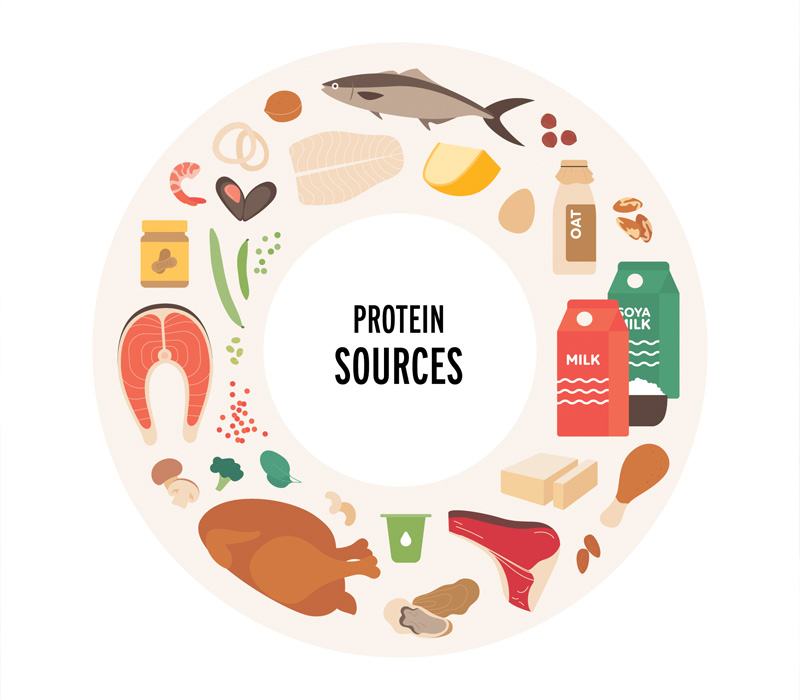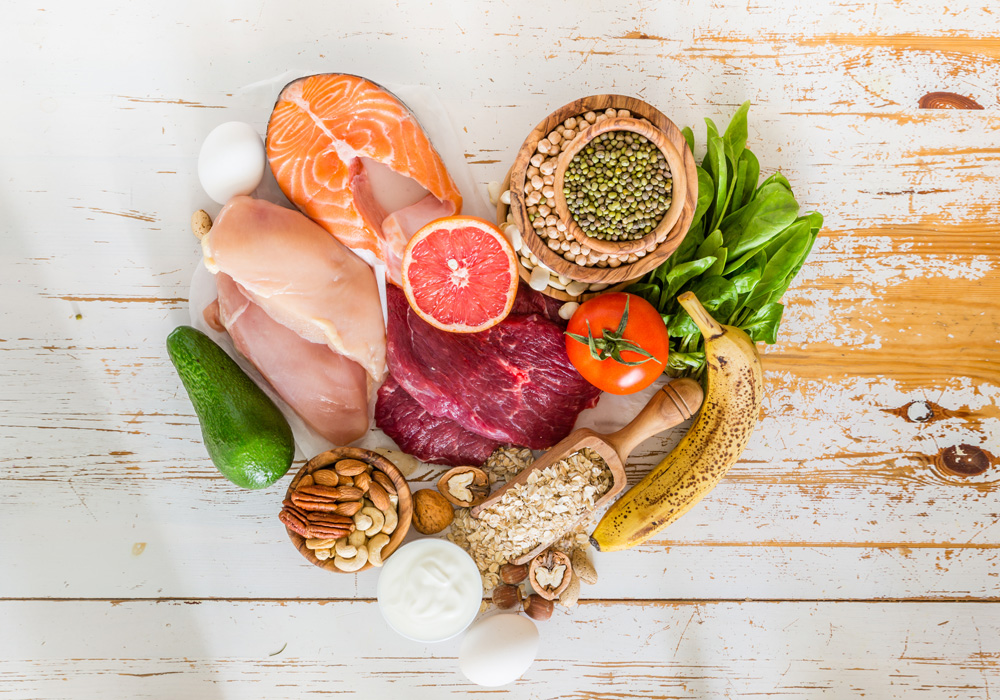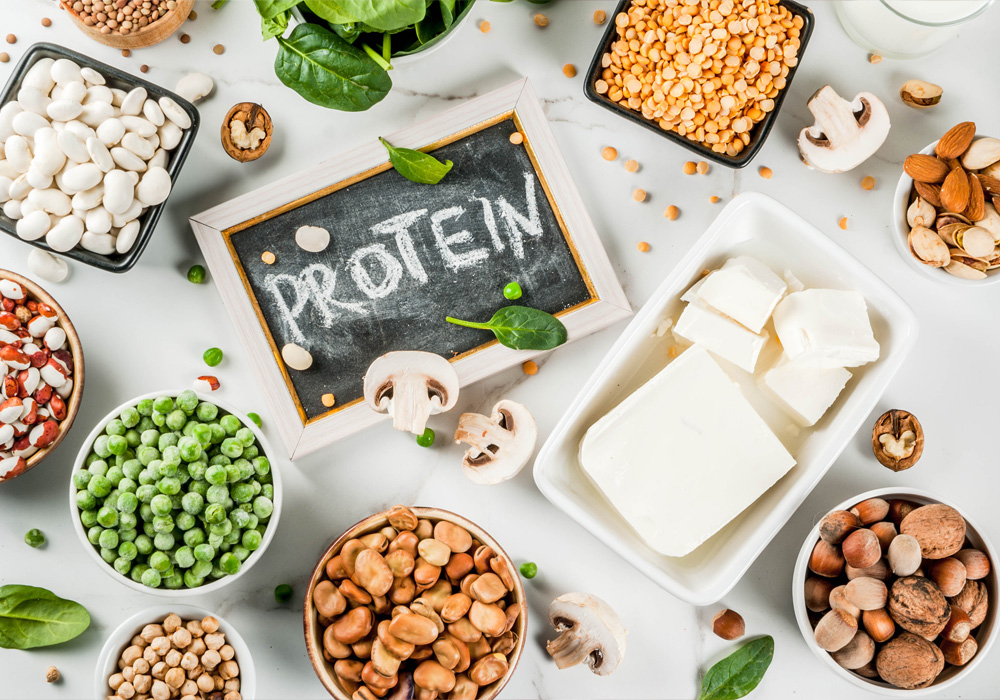
Protein is one of the three main macronutrients -along with carbohydrates and fats- that the human body needs to function optimally. Like other biological macromolecules, such as polysaccharides and nucleic acids, proteins are essential parts of organisms and participate in virtually every process within cells. Many of them are enzymes that catalyze biochemical reactions and are vital to metabolism. Others (also) have structural or mechanical functions, forming a system of scaffolding that maintains cell shape. Proteins are also important in cell signaling, immune responses, cell adhesion, and the cell cycle.
More specifically, protein:
- Makes up the structural components of cells and tissues (e.g. muscles, bones, hair, blood, and all body fluids)
- Helps maintain and build muscle mass
- Supports the bones and the function of the immune system
- Promotes faster muscle recovery after intense exercise
- Contributes to weight maintenance and/or weight loss
Animal and plant protein
Protein, which is essential for the structure and proper function of the human body, is made up of many different small components called amino acids, which are linked together forming various combinations during digestion. The total number of amino acids is 20, with 9 of them being called essential. As the name suggests, essential amino acids cannot be produced by the body and, therefore, must come from our diet. Animal protein contains all the essential amino acids in sufficient quantity and in a proportion corresponding to that of the proteins in the human body. On the other hand, plant-based proteins usually contain smaller quantities of only some of the essential amino acids.
We should aim to consume a variety of foods every day in order to provide our bodies with all the necessary nutrients (proteins, carbohydrates, fats, vitamins, minerals, etc.). In general, it is recommended that about 20% of the daily caloric intake of a healthy adult should come from protein, a percentage that may be lower or higher depending on the individual’s health history and daily activity. Nowadays, many people follow a nutrition plan that includes both animal and plant-based proteins, yet others prefer a vegetarian or strict vegan one, excluding high-protein foods such as meat, fish, and eggs from their diet. The same goes for Lent when people -mainly for religious reasons- abstain from eating meat, fish, and dairy products for a certain period.
Foods rich in plant protein
In cases when the consumption of animal protein sources is excluded or insufficient, it is particularly important to incorporate into the daily diet a variety of foods rich in plant proteins.
Legumes (beans, lentils, chickpeas), peas and soy products (tofu cheese, tempeh, edamame beans) are abundant in plant protein. In addition, nuts (almonds, walnuts, cashews) and seeds (chia, pumpkin seeds, sunflower seeds, and flaxseeds) provide significant amounts of plant protein. Finally, grains such as quinoa and oats, and vegetables such as mushrooms, spinach, or broccoli, should be frequently included in a vegetarian or vegan diet.
The combination of legumes, cereals, nuts, seeds, soy products and vegetables guarantees the daily coverage of protein needs as well as a balanced proportion of all the essential amino acids. In fact, recent studies have shown that vegetarians who consume the appropriate number of calories, while eating a wide variety of plant-based foods, fully meet their daily protein requirements.
In conclusion, plant and animal-based proteins may vary in their quality and digestibility, but this is not usually a concern for most people if their total protein intake (whether coming only from plant-based sources or not) meets their needs.


